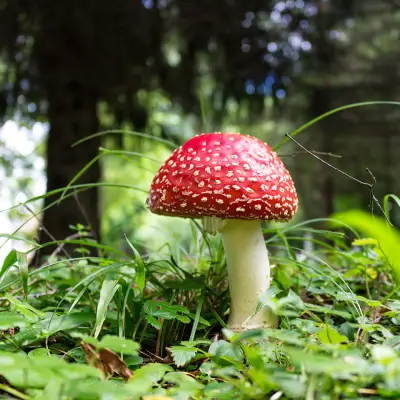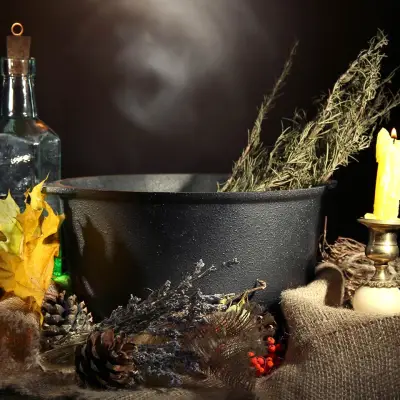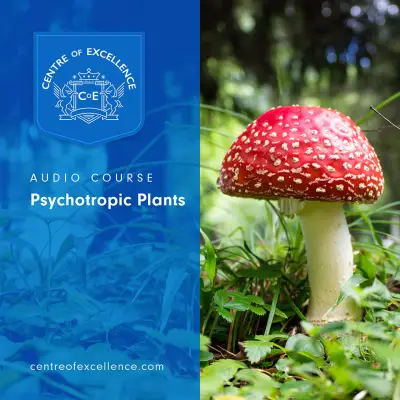If you’ve found yourself looking for natural ways to ease menopause symptoms like hot flushes or night sweats, you may have come across black cohosh. It’s often mentioned in conversations about herbal remedies for women’s health, especially around midlife. But what exactly is black cohosh, what does it do to the female body, and are there any side effects or risks you should know about?
This blog post examines black cohosh as a herbal remedy, covering its uses, benefits, and potential side effects.
This article is for informational purposes only and is not a substitute for professional medical advice, diagnosis, or treatment. Always consult with your GP or a qualified healthcare professional before starting any new herbal remedies, especially if you are pregnant, breastfeeding, taking medication, or managing a health condition.
Jump to:
- What is Black Cohosh?
- The Benefits of Black Cohosh
- What Types of Black Cohosh Can You Take?
- How Much Black Cohosh Should You Take, and When?
- The Best Time to Take Black Cohosh
- What Are the Side Effects of Black Cohosh?
- Who Should Avoid Black Cohosh?
- Is Black Cohosh Safe for Long-Term Use?
- Frequently Asked Questions About Black Cohosh
- Study Our Master Herbalist Diploma for £29
Recommended for you!
Best SellersWhat is Black Cohosh?
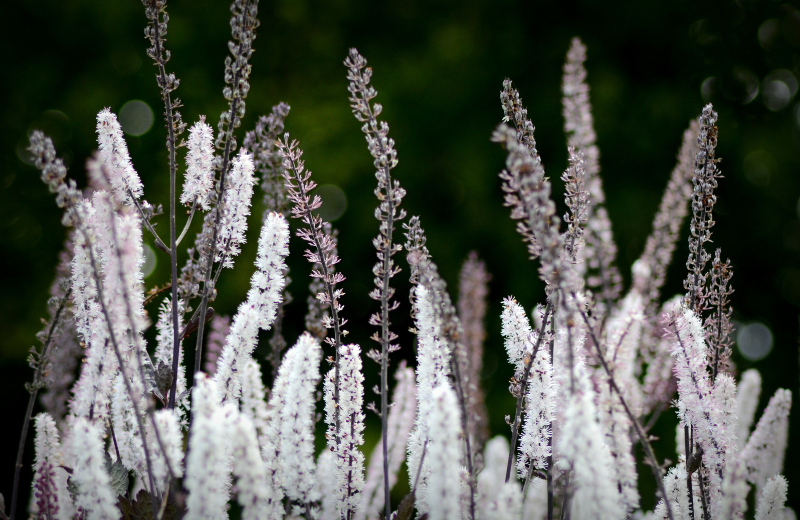
Black cohosh is a herb derived from the root of the Actaea racemosa plant, which is native to North America. The black cohosh root has been used for centuries in traditional medicine, particularly by Native American communities, to support women’s health.
Today, it’s commonly used as a supplement for hot flashes, night sweats, and other symptoms associated with menopause or hormonal imbalances. You’ll often find it in capsule form, tinctures, or tablets.
The definition of black cohosh might vary slightly depending on the form it's in, but essentially, it’s a herbal supplement believed to support hormonal balance, especially during perimenopause and menopause.
The Benefits of Black Cohosh
Black cohosh is widely used for supporting women’s health during menopause, thanks to its gentle effects on hormones and the nervous system. While research continues, five key benefits are consistently reported:
1. Relief from Hot Flushes & Night Sweats
Black cohosh is often used to reduce the frequency and intensity of hot flushes and night sweats. Some studies suggest it may lightly mimic oestrogen in the body, making it a helpful natural option for menopausal symptom relief without hormone therapy.
2. Improved Mood & Energy Support
Several users report an improved mood and reduced irritability after taking black cohosh regularly. Some even say it gives them a mild energy boost, helping them feel more emotionally balanced and less fatigued throughout the day.
3. Better Sleep Patterns
Because black cohosh may help reduce night sweats and anxiety, many women find that it improves their sleep quality. When taken in the evening, it may promote a calmer, more restful night.
4. Mild Anxiety & Emotional Support
Black cohosh is thought to influence neurotransmitters linked to anxiety. While research is limited, some women use it to help manage hormonal anxiety or emotional changes during menopause.
5. Anti-Inflammatory & Hormonal Support
Black cohosh contains plant compounds that may have mild anti-inflammatory effects. These, combined with its hormone-balancing properties, may help soothe physical and emotional discomfort linked to hormonal fluctuations.
What Types of Black Cohosh Can You Take?

Black cohosh is available in a range of forms, allowing you to choose what fits best with your routine and preferences:
- Tablets and Capsules: The most popular option, often containing 20–80 mg of standardised extract. Convenient for daily use and easy to measure.
- Tinctures and Liquid Extracts: Concentrated and fast-absorbing. A good choice if you prefer customisable doses or faster onset. Typically taken in small amounts, diluted in water. Learn how to make your own herbal tinctures.
- Dried Root or Powder: Can be used to make homemade teas or decoctions, though this method is less common today. Used mainly by herbalists or those experienced with traditional preparations.
- Teas: Less frequently used, but some blends include black cohosh alongside other herbs like valerian or lemon balm for menopausal or calming effects.
- Combination Supplements: Found in menopause or hormone balance formulas with herbs such as red clover, dong quai, or evening primrose. These are designed to support multiple symptoms in one blend.
How Much Black Cohosh Should You Take, and When?
The ideal dose of black cohosh depends on the form you’re using and your reasons for taking it. Always check the label instructions, and start with the lowest effective dose if you're new to it.
- Tablets and Capsules: Typically 20–80 mg once daily. Follow the product's guidance, and avoid exceeding the recommended maximum.
- Tinctures and Liquid Extracts: Usually 1–2 ml, one to two times per day. Often diluted in water and taken before meals or in the evening.
- Dried Root or Powder: Use approximately 1–2 grams of dried root per cup of water when making tea. Usually simmered gently and consumed once or twice daily.
- Teas: Used less often but can be taken once or twice daily. Best suited for gentle symptom support rather than targeted relief.
- Combination Supplements: Dosage varies depending on the blend. Always review the amount of black cohosh included and check for interactions with other herbs.
The Best Time to Take Black Cohosh
The best time to take black cohosh depends on your symptoms and how your body responds. For hot flushes, mood swings, or night sweats, many people find evening use helpful, especially if symptoms worsen at night. If you're looking to support daytime energy or reduce anxiety, a morning dose may work better.
If using black cohosh to ease sleep disruption, taking it 30–60 minutes before bed may be most effective. It’s also wise to take it at the same time each day to support consistent effects.
As with many supplements, it’s recommended to leave a gap of at least two hours if you’re taking medications or other herbs, as black cohosh may affect absorption. Always speak to a healthcare provider before starting regular use, especially if you're combining it with other treatments.
What Are the Side Effects of Black Cohosh?
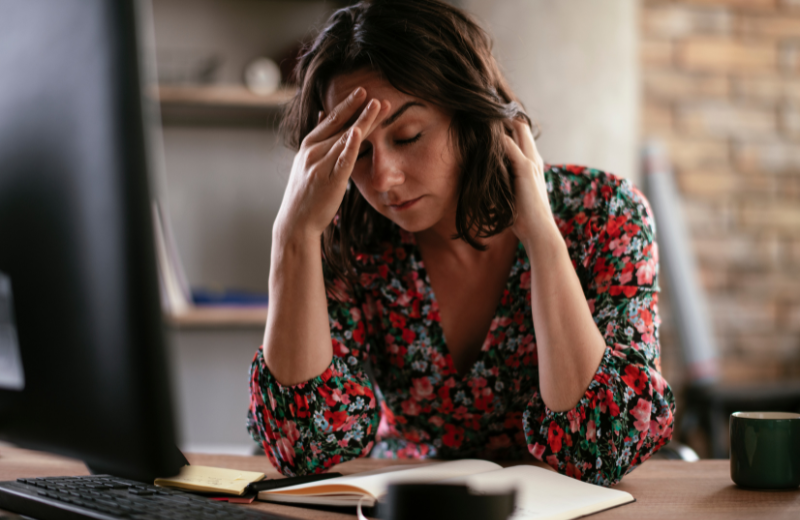
Black cohosh is generally well-tolerated when used as directed, but like all supplements, it can cause side effects in some people, especially at higher doses or with long-term use. Side effects are usually mild, but it’s still important to be aware of how your body responds. Reported side effects may include:
- Digestive discomfort, such as nausea or an upset stomach
- Headaches or a feeling of light-headedness
- Rash or skin sensitivity in rare cases
- Liver-related symptoms such as yellowing of the skin or eyes (rare but serious)
- Breast tenderness or spotting in some women
- Water retention or bloating, which may feel like weight gain
Black cohosh may also interact with other medications or supplements, particularly those processed by the liver or affecting hormone levels. To avoid interactions, it’s best to take black cohosh supplements separately from prescription medicines and consult a healthcare provider beforehand. Starting with a low dose and observing how you feel can help reduce the chance of side effects.
Who Should Avoid Black Cohosh?
Black cohosh isn’t suitable for everyone. You should avoid it if you:
- Are pregnant or breastfeeding
- Have liver conditions
- Have a hormone-sensitive condition (like breast or ovarian cancer)
- Are allergic to aspirin or salicylates
It’s always best to speak with a healthcare professional before starting any new supplement, especially if you’re on medication.
Is Black Cohosh Safe for Long-Term Use?
Black cohosh is typically considered safe for short-term use, usually up to six months. This recommendation is based on current research, which hasn’t fully assessed the long-term impact of daily use.
To ensure safety and maintain effectiveness, many herbalists suggest using black cohosh in cycles, such as taking it for a few months, followed by a short break. This approach may also help prevent your body from becoming too accustomed to the herb, allowing it to remain effective when symptoms flare.
If you’re considering using black cohosh for an extended period, it’s best to do so under the guidance of a healthcare provider, particularly if you're managing ongoing hormonal or liver-related health concerns.
Frequently Asked Questions About Black Cohosh
What does black cohosh do to the female body?
Black cohosh may help balance hormones, ease hot flushes, improve mood, and support better sleep. Some women also report more stable emotional wellbeing during hormonal shifts.
Does black cohosh increase oestrogen?
Black cohosh is not a hormone, but it may act similarly to oestrogen in the body, which is why it’s often used for menopause. This makes it appealing to those avoiding synthetic hormone therapy.
Can you take black cohosh and evening primrose oil together?
Some women do use both, especially if one helps with hot flushes and the other supports skin or mood. Taking them together may offer broader support for different menopause symptoms.
Does black cohosh increase hair growth?
There’s no evidence to support black cohosh increasing hair growth, although hormone balancing may help with hair thinning in some cases. If hair loss is due to hormonal changes, black cohosh may offer indirect help.
Does black cohosh cause water retention?
Some people report bloating or water retention when taking black cohosh, though it’s not a universal side effect. Staying hydrated and monitoring sodium intake may reduce this effect.
Is black cohosh an anti-inflammatory?
Black cohosh has mild anti-inflammatory properties, but it’s not a substitute for other treatments. It may support joint or muscle comfort when paired with other lifestyle changes.
Do doctors recommend black cohosh?
Some doctors recommend black cohosh, especially those who take an integrative or holistic approach. However, recommendations often depend on your health history and symptom severity.
Can I take turmeric and black cohosh together?
There are no known major interactions, but combining supplements should be done carefully. Both may complement each other’s anti-inflammatory and hormone-supporting effects.
Can you take black cohosh without menopause?
While it’s most often used for menopause, some use black cohosh for PMS or hormonal imbalances. It’s important to monitor your body’s response and adjust as needed.
Recommended for you!
Best SellersStudy Our Master Herbalist Diploma for £29
If you’ve found yourself fascinated by the potential of black cohosh and other natural remedies, why not deepen your understanding? Whether you're a beginner or looking to expand your knowledge, Centre of Excellence offers a comprehensive Master Herbalist Diploma Course, designed for people of all levels.
The course covers everything from herb identification and preparation to building herbal blends for specific emotional and physical needs. Follow the link to access the course for just £29!

